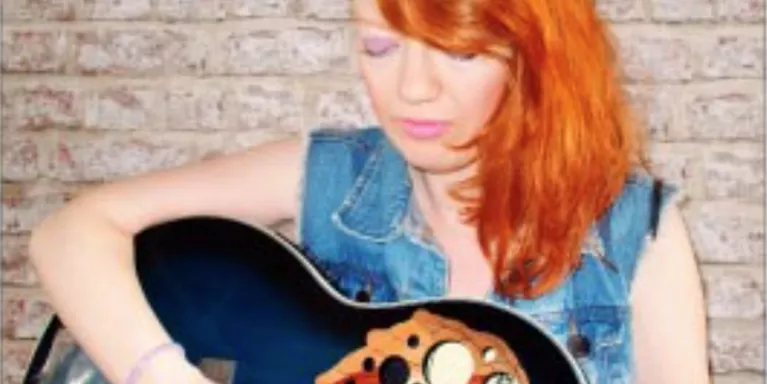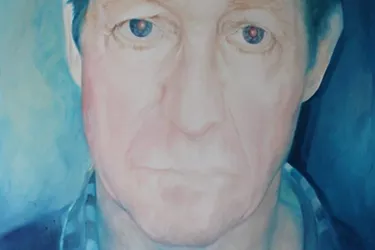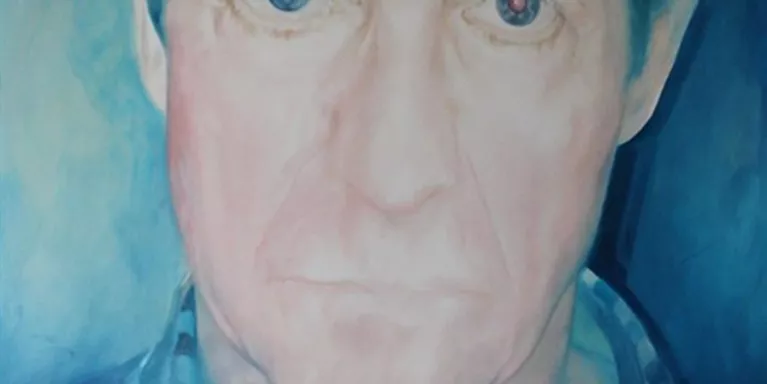The Art of Depression
Kate blogs about how sketching has pulled her out of the darkness and has given her the confidence to discover her real self.
I remember when I was thirteen years old and sitting at the end of my bed thinking 'What's wrong with me?', 'Why can't I just be normal?' When looking up the dictionary definition of 'Normal' it states, 'Normal is; standard; usual, typical, or expected'. When thinking about human beings those words have never come to mind because we aren't any of them.
My name is Kate. I have battled with severe depression since a young age and am still fighting currently. After years of therapy, trying countless coping mechanisms and medication I am ready to share my story.
I'd end up feeling completely lost and even wishing to end my own life, like turning off a light switch
I have always needed reassurance in everything I do, from cooking a meal to completing a job; it always gave me some sort of purpose that I was doing my life right. Without that reassurance I often fell into a dark spiral where I felt I had no purpose in life. I had a dead-end job while my friends were either at university or getting married and seemed so certain about their futures. Social media made me feel like everyone else was doing great and that my life didn't matter in comparison. It was like a snowball effect in my mind, where one tiny thought would get carried away and I'd end up feeling completely lost and even wishing to end my own life, like turning off a light switch.
While feeling hopeless and broken I would feel a physical pain in my chest and head where the pent-up anguish and toxic thoughts were becoming too overwhelming to handle. I had to express my emotions somehow. One day when I was feeling like this I picked up a scrap piece of paper and a pen and began to draw how I felt. Once I had finished, I put the pen down and cried silently alone in my room. The difference was that my chest felt eased and my thoughts had been muted.
I started to draw nearly every day, with every pen stroke acting like a release
After that episode I started to draw nearly every day, with every pen stroke acting like a release. Drawing out the negativity without hurting myself or those around me, the paper is my safe place and the pen is me venting my emotions how I feel is best. I found that sketching pulled me out of the darkness and gave me the confidence to discover who I was and how I really felt. I now specialise in continuous line drawing and animal sketching, which I am extremely passionate about. I have set up my own sketching page where people can view the art work and see my journey while I experiment with different styles, mediums and techniques.
It gives me control over my emotions and allows me to feel how I feel without judgement
In art there is no right or wrong, there is just perspective and personal interpretation, and this allows you to express yourself. I find sketching an escape from the world, a place where I can scribble and overlap lines the way I want to. It gives me control over my emotions and allows me to feel how I feel without judgement or anybody asking 'What's wrong with you today?'
Whether it's music, dance, acting or scribbling on a post-it, art can help express the emotions that you didn't even realise you could describe. By sharing my story, I wanted to encourage the use of healthy and safe coping mechanisms where everyone can be their 'Normal' and not feel without purpose.
We are all exceptional human beings who should take pride in being unusual and doing the unexpected. We have only one life; we owe it to ourselves to live it.


Information and support
When you’re living with a mental health problem, or supporting someone who is, having access to the right information - about a condition, treatment options, or practical issues - is vital. Visit our information pages to find out more.
Share your story with others
Blogs and stories can show that people with mental health problems are cared about, understood and listened to. We can use it to challenge the status quo and change attitudes.

















